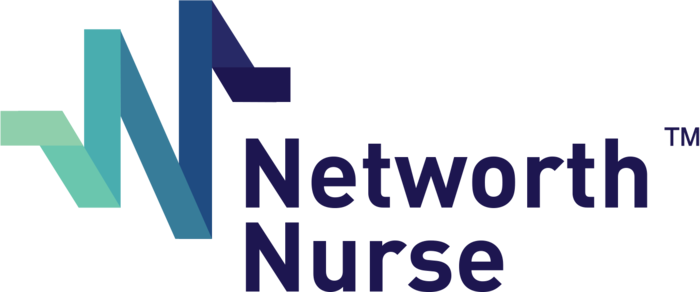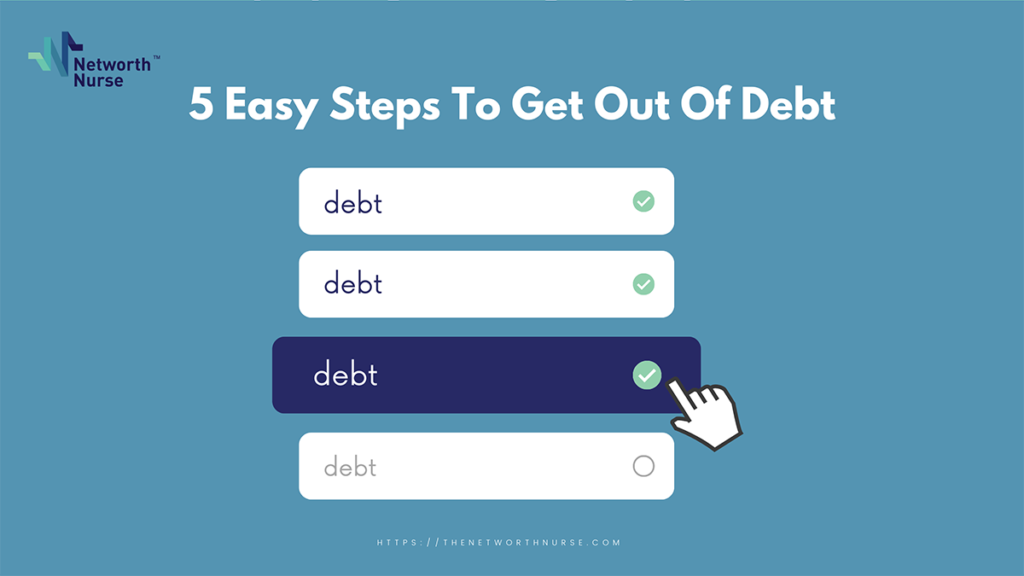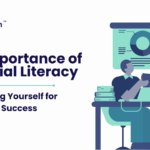Share on facebook
Share on twitter
Share on linkedin
Are you tired of sacrificing the things you love to get out of debt? Maybe you’re working long hours in a job you no longer enjoy and feeling trapped.
What if I told you that you can get out of debt, even with an average or low income?
These five steps will help you learn how to budget, save money, and use incentive shifts to your advantage to free yourself of debt once and for all. Ready to get started?
Step 1: Assess
Take out a piece of paper and make a list of your bills, expenses, non-essentials (i.e. subscriptions), debts, and income.
Next, you will want to get clear on your state’s statute of limitations for debt collection. Do you really need to pay back that money from 10 years ago? Probably not. According to the Consumer Financial Protection Bureau, “most statutes of limitations fall in the three to the six-year range.”(2017) While we would all like to pay what we owe, it’s important to prioritize when money is tight. So, put that nursing background into practice and focus on the bills that you absolutely have to pay off.
Learn more about how to get out of debt by reading books, listening to podcasts, and even taking a course that walks you through the process. This will help motivate you and equip you with critical tools for success.
Step 2: Diagnose
Using your list, calculate your total amount of debt. Do not skip this step!
The goal is to be debt-free, right? In order for that to happen, you will need to know exactly how much debt you have. Are we talking about a $10,000 loan or a grand total of $150,000 from various loans? This specification will be crucial to prioritizing items in your budget.
Step 3: Plan
Reviewing your income and list of expenses, create a budget to guide your spending throughout the month. You could be old-fashioned and write it down or use an app!
Plan to pay the minimum amount on all your debt payments and send any extra cash to your smallest debt. As you pay off each loan, keep allocating spare money toward the next lowest one.
If your spending exceeds your income, you have two choices: spend less or earn more! Either way, avoid getting into debt.
Looking to spend less?
- Cut out that gym membership and start running or watching free workout videos on YouTube
- Reduce eating out by meal prepping and cooking at home.
- Ditch the cable and opt for Netflix or Hulu instead.
Interested in working more?
- Pick up extra shifts and get that overtime pay!
- Work evening, night, or weekend shifts to benefit from the shift differential.
- Work PRN at another hospital to increase your hourly pay.
If you are looking for a job change, check out student loan forgiveness plans. These typically require a commitment of two years or more. In return, you will receive full or partial student loan forgiveness. This is a great option if student loans are a part of your debt!
Step 4: Implement
This phase is often the hardest, as it can be frustrating to practice immense self-control over your spending habits. However, you may experience more freedom by telling your money where to go.
Here are some tips to make the transition easier:
- Use cash! Research shows that people who make payments in cash, rather than a credit card, actually spend less money overall (Journal of Experimental Psychology:Applied, 2008).
- Get outside! Invite your friends on a hike or walk through the park, rather than going to a movie. Pack a picnic lunch instead of eating at a restaurant. This allows you to stick to your budget with minimal suffering and still get to spend time with friends.
- Examine your habits! Are you going to Starbucks daily? Get creative and learn to make your favorite beverage at home.
Step 5: Evaluate
As a nurse, you always check in with your patients to ensure that the interventions are having the desired effect. The same process applies to getting out of debt!
Ask yourself: How is my budget working? Do I need to put more money toward food? Am I spending less on miscellaneous items?
This is the time to evaluate, adjust, and course-correct accordingly.
Review your progress—at this rate, how long will it take to be out of debt? What else can you be doing?
Get creative:
- Sell that extra car (sorry hubby!)
- Have a yard sale
- Ask for a raise
And that’s it!
Now, you’re officially ready to start your debt-free journey. Interested in learning more? Check out our courses about personal finance.
References
https://www.consumerfinance.gov/ask-cfpb/what-is-a-statute-of-limitations-on-a-debt-en-1389/
https://psycnet.apa.org/record/2008-12802-002






